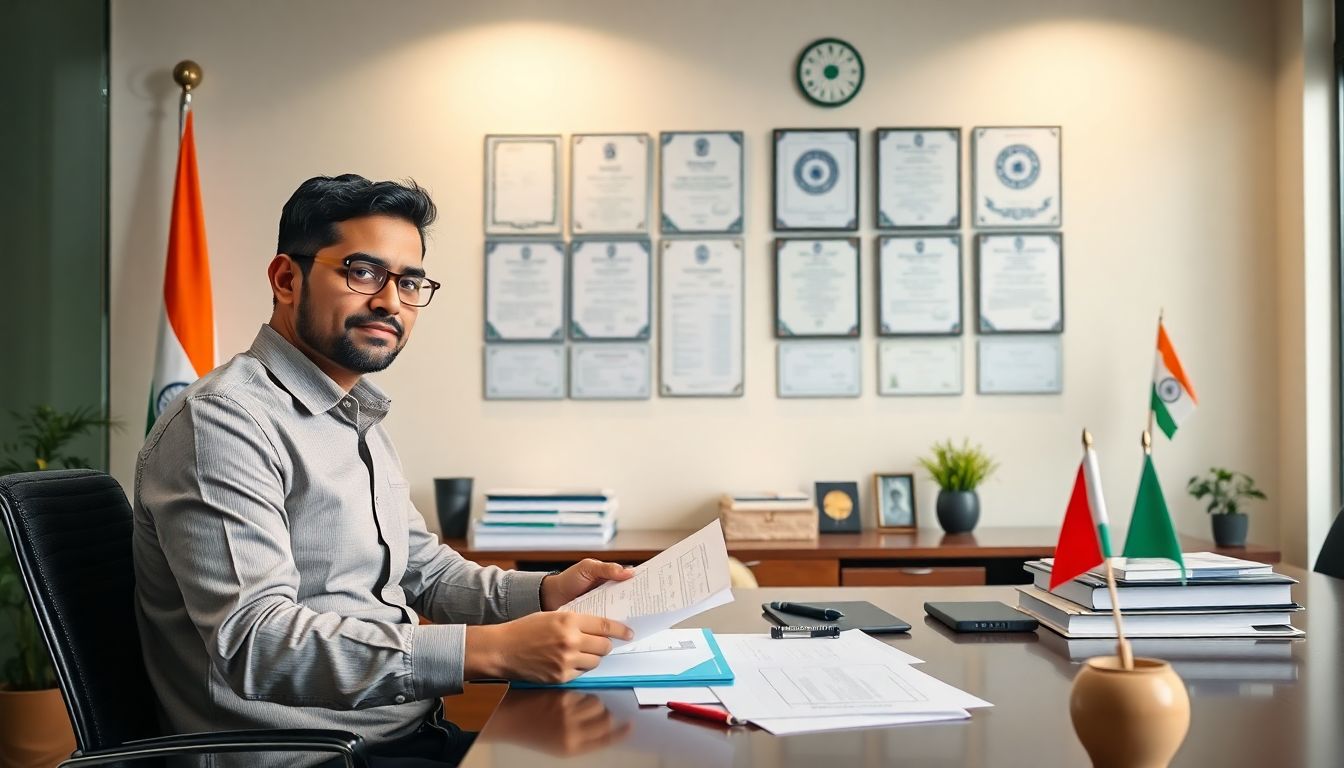
Know The Requirements of Certificate Attestation Services in India
Introduction
Certificate attestation is the process of verifying the authenticity of a document so it can be used abroad. Whether you’re moving for a job, studying overseas, or establishing a business, proper attestation is vital. It acts as proof that your documents are genuine and legally recognized in another country. As more Indians seek to work or settle in foreign nations, the demand for attestation services keeps rising. Knowing what’s needed ensures a smooth, hassle-free experience when getting documents certified. This guide aims to clarify all requirements and steps involved in certificate attestation services in India.
Understanding Certificate Attestation in India
What is Certificate Attestation?
Certificate attestation refers to the official validation of documents by Indian authorities. It includes a variety of certificates such as educational diplomas, marriage, birth, commercial, and Power of Attorney papers. Attestation confirms that these documents are genuine and created by authorized entities. It’s different from legalization or the apostille, which are additional certification steps for foreign use. Attestation helps foreign embassies verify the legitimacy of your documents quickly and without doubts.
Why is Certificate Attestation Mandatory?
Many countries require attested documents for walls like visas, university admissions, or business licenses. It’s a legal must to prevent fraud and protect national interests. Government and diplomatic bodies see attestation as a trust badge for documents crossing borders. For example, if you’re applying for an employment visa in Canada, your degree must be attested by Indian authorities first. The process acts as a bridge to ensure your documents are valid and accepted abroad.
Who Conducts Certificate Attestation?
In India, authorities like the Notary, State Home Department, and the Ministry of External Affairs (MEAs) handle attestation. They confirm that the documents are prepared and signed by authorized persons. Once certified at the central level, the documents are sent to foreign embassies or consulates for final approval. These agencies work together to verify and legalize documents for international usage.
Types of Certificate Attestation in India
Education Certificate Attestation
Educational certificates include high school diplomas, graduation, and postgraduate degrees. These require initial notarization, followed by attestation from the State Education Department and MEA. Each copy needs to be certified to prove the degree is authentic.
Personal Document Attestation
Personal documents like birth, marriage, and divorce certificates are often needed for visas and legal procedures abroad. These require verification from local authorities and embassies. The process involves notarization, state certification, and sometimes additional translation.
Commercial and Business Document Attestation
Business certificates such as incorporation papers, trade licenses, and share certificates need attestation for international dealings. These often involve certification from the Ministry of Corporate Affairs or other relevant agencies and specific embassy approval.
Power of Attorney and Other Legal Documents
Legal papers like Power of Attorney give someone authority to act on your behalf abroad. They must be attested by authorized legal bodies and the embassy. Proper certification makes these legal documents valid internationally.
Step-by-Step Requirements for Attestation
Document Preparation
Before starting, gather your original certificates and make multiple photocopies. Keep a clean, organized file. If documents are not in English or Hindi, need to be translated and notarized first. Sometimes, notarization of copies is necessary, depending on the document type.
Attestation Process by Different Authorities
Notary Attestation
Notarization involves a registered notary public verifying your signature and identity. It’s often the first step, especially for legal or personal documents. You must submit original papers along with ID proof.
State Home Department Attestation
At the state level, the Home Department certifies the document’s authenticity. You need to submit your documents in person or via courier, along with application forms and fees. This step confirms local authority approval.
MEA Attestation
The Ministry of External Affairs provides central clearance. Submit your documents with the previous certifications, along with application forms, passport copies, and fees. This step verifies that Indian authorities endorse your documents for international use.
Embassy/Consulate Attestation
The final step involves the embassy of the country you’re aiming for. Each embassy has specific procedures, including appointment scheduling and document submission. Once completed, your document is officially recognized abroad.
Additional Requirements
Verification of signatures, seals, and stamps is crucial. Some countries require filling out a consular invoice or providing supporting documents. In select cases, an apostille might replace attestation, especially in countries that are part of the Hague Convention.
Common Challenges and How to Ensure Compliance
Preparing documents improperly can cause delays or rejections. Avoid common pitfalls by double-checking maturity, translation accuracy, and adhering to guidelines. It’s wise to hire certified attestation agencies or consultants who know the ins and outs. They help prevent mistakes and speed up the process, saving both time and money.
Expert Tips and Best Practices
Keep all documents well-organized and retain copies of every certified paper. Confirm translation accuracy beforehand. Regularly update yourself on government policies, as rules change often. Check embassy websites for the latest protocols to avoid surprises.
Recent Trends and Updates in Certificate Attestation in India
Digital tools now make some attestation steps online, reducing paperwork and wait times. Post-pandemic adjustments mean more embassies accept electronic submissions or have remote appointment options. Data show the demand for attestation services has grown, fueled by migration and international employment trends.
Conclusion
Getting your certificates attested in India involves several essential steps that must be followed carefully. From notarization to embassy approval, each stage ensures your documents are recognized abroad. Missing even one part can cause delays or denial of your visa, study, or business application. Always opt for certified agencies, verify document requirements beforehand, and stay updated on policy changes. Proper preparation guarantees a smooth journey for your documents from India to anywhere in the world.

